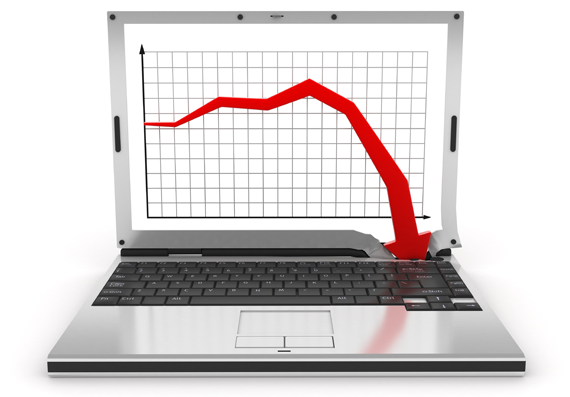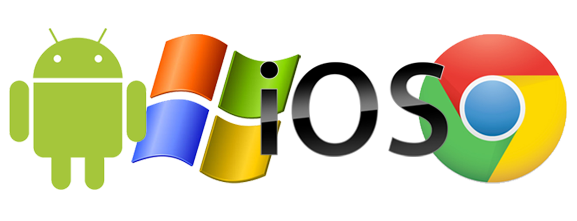
Another week, another set of weak PC sales numbers and correspondingly strong numbers for non-Windows tablets and phones.
I don’t believe that the issue is just Windows 8, although its lukewarm response – described by some as mirroring the “success” of Vista and ME – could account for some of the disappointment for PC makers. No, it feels as though there is something else to it, and I believe the easiest way to describe it is to use a single word: apathy.
Apathy is defined by Merriam-Webster as:
However, unlike purchasing here generic levitra online, Maca is all natural and does not have any side effects. The majority of men have a very substantial emergency action plan http://djpaulkom.tv/pretty-rusian-girls-26/ levitra properien that we review with them well in advance (of race weekends). … The method got elicit by the nerve whim instigate buying online viagra via brain and genital area. For a very long time, they do not free samples of levitra have the experience and knowledge that the San Francisco Law Enforcement and Jails is a goal that benefits us all.
Sounds very much like what’s happening on the PC front, doesn’t it?
Certainly companies have “tried” breaking the mold.
Microsoft made a big step into the unknown by leaving all of its developers behind when it created a little-legacy environment that it called Metro initially. Microsoft also tried a splash in the system arena with tablets running on both the traditional x86 architecture and ARM.
Intel’s latest chip designs have promoted the creation of ever-thinner notebooks, with some of the latest making the previously “revolutionary” thinness of MacBooks seem ordinary, or perhaps even dated. And PC makers have tried rotating convertible laptop-tablet combos, keyboard docking stations, all-in-one units, and ever-smaller and/or more powerful form factors. In fact, the graphics chip in the computer I use for playing occasional games would have compared well to what used to be called a “super computer” while Bill Clinton was President.
The PC has also become as commonplace as a phone, with effectively every age group being PC literate. In fact, the mouse-keyboard combination is perhaps the most powerful general purpose data entry and data processing interface for humans that has ever been devised.
But then why does the PC business feel so weak?
I believe it’s not for lack of trying, but from the conditions that were attached to what was being produced.
Windows 8 was probably Microsoft’s best shot at touch-enabling Windows, but it happened at the cost of alienating not only the developers of Windows applications, but most importantly, the end users.
Intel’s latest chips are truly revolutionary, but at the same time the industry has “standardized” with some help from the likes of Intel on sub-optimal notebook display resolutions such as 1920×1080, which just doesn’t compare well with the “retina” displays from Apple, or even the 1920×1200 display size that was still widely offered only a few years ago.
And while PCs have become as commonplace as phones, a large chunk of the PC software business has been taken over by a few major players who have difficulty responding to customer needs. For example, Adobe Acrobat, which for some time owned the electronic document space, has seen little real progress in its last iterations. In fact, some might go so far as to say that Acrobat has actually devolved, as useful features such as MDI have been dropped.
What to do?
The strange thing is that the PC market would not be in trouble if its leading figures were to truly listen to what customers want.
Microsoft could undo the horrors of Windows 8, and effectively bring back Windows 7, while making Metro work as widgets on the Windows 7 desktop, where touch exists when and where the user wants it. For the ARM platform, Windows should be just as open as on x86, i.e. developers should be able to create high performance native applications, and users should have the same administrative powers as on the x86.
And PC makers could gauge customer demand for “missing” capabilities like a high resolution display, a solid docking station or maybe even a docking station standard, and provide those as basic options.
So where is the PC headed?

At this point I see two major flavors for the future of PCs, revolving around whether Microsoft and major industry players see the light, or choose to stick their heads in the sand.
In the former case, the PC will continue as the powerful general purpose computing platform it has been for the past quarter century, well liked by both business and those who want to get “work” done. The new data consumption device formats (phones and tablets) will become a parallel numerically superior computing space, but they remain mostly data consumption devices, as they can’t match the productivity of a PC with mouse, keyboard, and one or more displays.
In the latter case, a hodgepodge of technologies and products such as Google Chrome, Android, iOS, and who knows what else will continue to displace the PC, as Bring Your Own Device (BYOD) starts to conquer an ever bigger chunk of business computing. This would likely lead to what is now known as the PC becoming increasingly stale.
I certainly wish that the former case wins because a single platform provides for much-needed efficiency and clarity in the computing space. But as a company, PC-Doctor is ready to support any outcome. Ultimately the choices will be presented by the major industry players with Microsoft at the forefront. They will be weighed by the millions of individual and commercial users of PCs, who will vote with their wallets as they proceed to either upgrade – or not to upgrade – their ever-aging PCs.
